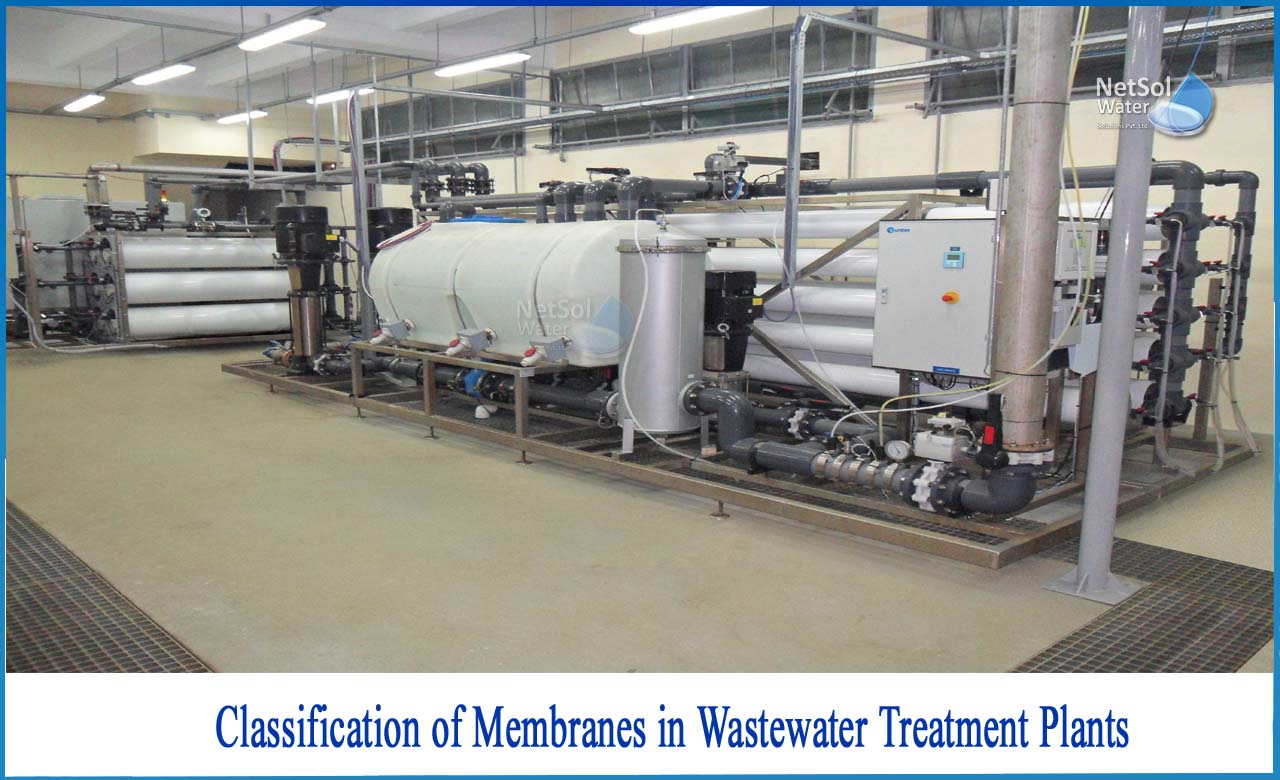How to Classify of Membranes in Wastewater Treatment Plants?
Membrane technology can treat a wide range of wastes, including sanitary landfill leachate containing both organic and inorganic chemical species, water-soluble oil wastes used in the metal fabricating and manufacturing industries, solvent-water mixtures, and oil-water mixtures generated during metal fabricating facility washing operations.
Membrane processes can be classified into sub-processes based on the material used for the membrane, the nature of the driving force, and the separation mechanism, such as reverse osmosis (RO), electrodialysis (ED) or electrodialysis reversal (EDR), microfiltration (MF), ultrafiltration (UF) and nanofiltration (NF).
Pressure is used to transfer water through the membrane in RO, MF, UF and NF. As water passes across the membrane, MF eliminates particle debris, whereas RO removes numerous solutes. Large particles and bacteria are often rejected by MF membranes, which have the biggest pore size. Because UF membranes have narrower holes than MF membranes, they can reject bacteria and soluble macromolecules like proteins in addition to big particles and germs. RO membranes are virtually non-porous, allowing particles and even numerous low-molar-mass species like salt ions and organics to pass through. NF membranes, also known as loose RO membranes, are a relatively novel kind of membrane.
Rising regulatory pressure to deliver higher quality water, increased demand for water necessitating the use of low quality water resources as a source, and the development and commercialization of membrane processes are the driving reasons behind the usage of membrane technology.
Membrane classification
There are three mechanisms for separating ions and other particulate materials from membranes, and the membranes are classified accordingly:
- Sieve effect: This process separates materials based on pore size differences, such as MF and UF.
- Solution-diffusion mechanism: This process separates elements in the membrane based on differences in their solubility and diffusivity, such as RO.
- Electrochemical effect: In this process, separation is based on the difference in charges of the species to be separated, for example, ED (electrodialysis).
Membranes are divided into three groups depending on their separating mechanisms.
i) Porous membranes
In these membranes, there are fixed holes. These pores are classified into three groups, each of which has its own set of characteristics.
- Macropores: These are greater than 50 nm in diameter;
- Mesopores: These are 20 to 50 nm in diameter;
- Micropores: These are pores with a diameter of less than 2 nanometers.
MF and UF are porous membranes, but NF falls somewhere in the middle between porous and non-porous membranes.
ii) Non-Porous Membranes
Dense media membranes are what they are. Species diffusion occurs in the free volume that exists between the membrane material's macromolecular chains. RO is a membrane that is not porous.
iii) Ion-exchange Membranes
These are non-porous membranes of a certain sort. They're made up of swelling gels with preset positive or negative charges on them. Anion exchange membranes have fixed positive charges, whereas cation exchange membranes have fixed negative charges. These are non-porous membranes of a certain sort. They're made up of swelling gels with preset positive or negative charges on them. Anion exchange membranes have fixed positive charges, whereas cation exchange membranes have fixed negative charges.
How can Netsol Water help?
If you need help designing an efficient membrane technology equipment such as RO, contact Netsol Water. We are the leading manufacturers of the RO plants. We can provide you with design calculations, budgetary expenses, preliminary layouts, and a lifetime cost analysis.
Netsol Water is Greater Noida-based leading water & wastewater treatment plant manufacturer. We are industry's most demanding company based on client review and work quality. We are known as best commercial RO plant manufacturers, industrial RO plant manufacturer, sewage treatment plant manufacturer, Water Softener Plant Manufacturers and effluent treatment plant manufacturers. Apart from this 24x7 customer support is our USP. Call on +91-9650608473, or write us at enquiry@netsolwater.com for any support, inquiry or product-purchase related query.



